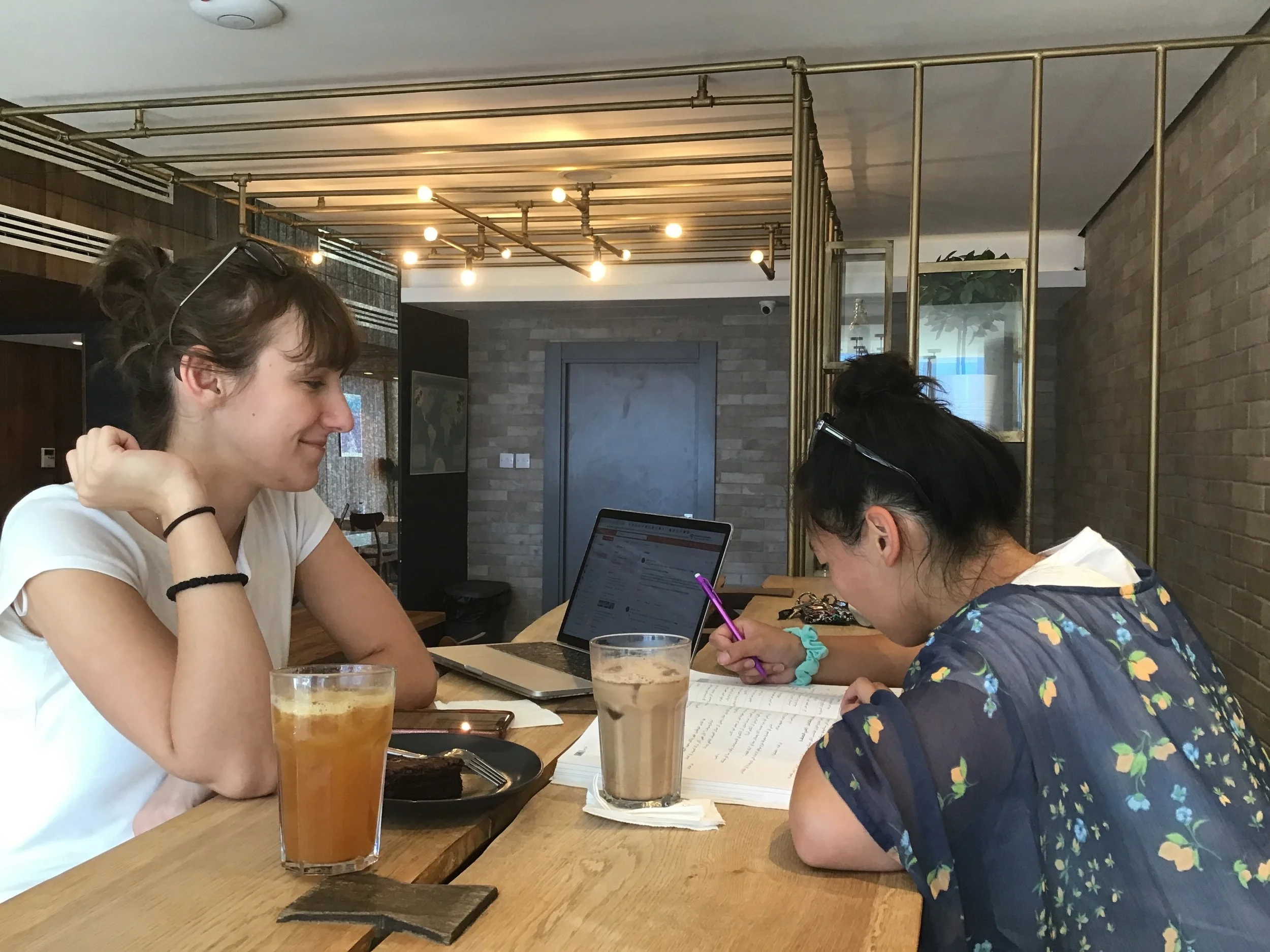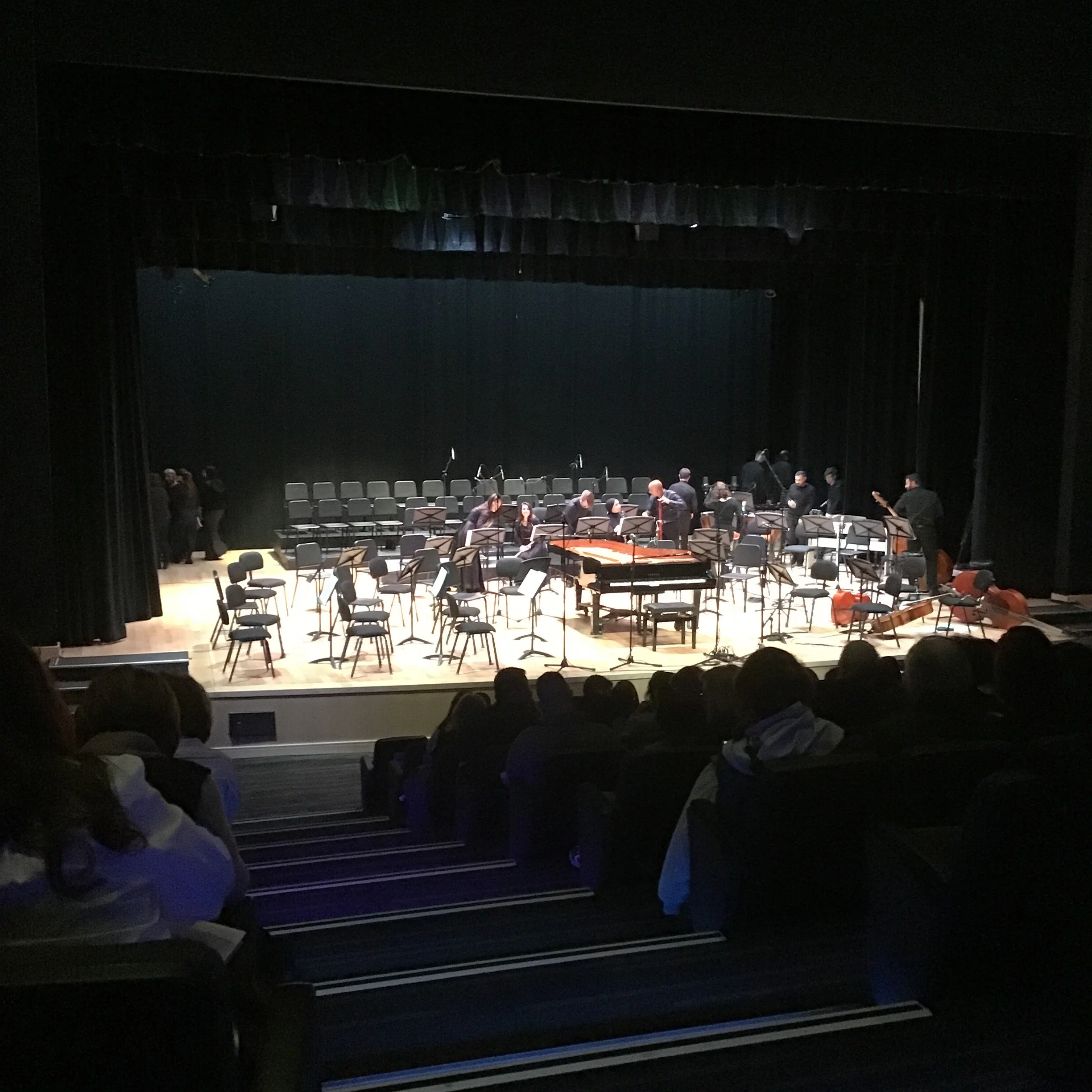"What is Means to be Classical: Thoughts on music while in Jordan" by Sela Dombrower
Banner photo credit: Brown, 2022.
I grew up in a musical family; hanging out involves constant musical theater references and playing “guess the composer” before NPR announces the piece. Both my older brother and I studied classical piano growing up, and to varying degrees at university. By the time I started college, institutions were seeking out ways to move beyond western classical canon and incorporate more composers of different backgrounds, identities, and styles into their pedagogy.
I chose my university in part because it allowed me to continue growing as a pianist while not sacrificing my other interests. There were times, though, when music became a source of stress and I had to step back and remember why I was doing it in the first place. Sometimes that meant reconnecting my music practices with other aspects of my life.
Around this time I also started studying Arabic and wanted to bridge my music world with my language world. I found some Arab composers—as the article below discusses, much of their work is under acknowledged. Many of them studied in European conservatories and some struggled to straddle the expectation of stereotypes of Middle Eastern music, while being accepted by a western classical audience. This highlights something larger about people’s thoughts about what music “should be,” and how that contradicts or feeds larger stereotypes. There are some great composers here that I’d encourage you to check out: https://www.7iber.com/culture/five-arab-classical-composers-of-the-20th-century/
In college I have especially been challenging my own conceptions of what it means to be classical, and thinking about the types of music that are typically more honored in those spaces. In terms of approach for example, I remember learning a contemporary salsa piece freshman year. My professor pushed me towards what I thought of as breaking habits from classical training. In reality, I was growing my toolbox of techniques. As I branched out, I began to incorporate different approaches in both learning and interpreting new pieces.
For the salsa, my professor suggested I stop trying so hard to count, and instead rely on an internalized sense of the rhythms from listening to music. I also struggled to break down a piece called Coma Dance by Egyptian-American composer Halim el-Dabh, because of its new (to me) rhythmic complexity. I ended up learning it mostly auditorily. Previously, learning auditorily was something I’d only done in casual contexts like bands. Exploring music of more cultures, genres and styles side-by-side traditional classical repertoire has changed the way I appreciate, learn, and participate in music.
Fast forward to Fall 2022 and I am studying abroad in Jordan. I found a weekly music workshop that teaches sight singing and aural skills—in Arabic!—skills I’d never had the time to prioritize. I love stretching my relationship to sound in a fun, low stakes environment.
So while I am not taking formal lessons this term, I have been exploring the city through sound. People listen to Fairouz on Friday mornings and go wild with the Dabke at weddings. Then there's the truck that drives around neighborhoods delivering gas for people’s homes, and its constant jingle is the beginning of Fur Elise. And throughout the day the call of prayer echoes throughout the city.
Study abroad has been an opportunity for delving deeper into Arabic music but also helped me appreciate my own relationship to music more. Not having access to the same communities I have at home—playing piano with my brother, singing with friends—has made me value it even more. Listening to familiar songs here has also been a source of comfort when I feel far away. Music is therapy, culture and connection, and my time in Jordan has highlighted that even more.
Sela Dombrower is a junior at Lawrence University and is studying abroad on the Amideast Area and Arabic Language Studies Program in Amman, Jordan this fall 2022.






